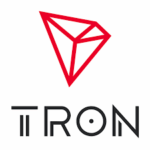We adhere to strict standards of editorial integrity to help you make decisions with confidence. Some or all links contained within this article are paid links.
Waves of tariffs from President Donald Trump — despite a temporary pause on many — has unleashed chaos across global markets, reigniting trade tensions and rattling investors. But billionaire hedge fund manager Ray Dalio says the real storm is still to come.
On April 7, in a lengthy social media post, Dalio argued that the recent tariff drama is merely a symptom of deeper, structural problems.
“We are seeing a classic breakdown of the major monetary, political, and geopolitical orders,” he wrote.
Dalio outlined five forces he described as reshaping the global landscape.
Don’t miss
- I’m 49 years old and have nothing saved for retirement — what should I do? Don’t panic. Here are 6 of the easiest ways you can catch up (and fast)
- Want an extra $1,300,000 when you retire? Dave Ramsey says this 7-step plan ‘works every single time’ to kill debt, get rich in America — and that ‘anyone’ can do it
- Robert Kiyosaki warns of a ‘Greater Depression’ coming to the US — with millions of Americans going poor. But he says these 2 ‘easy-money’ assets will bring in ‘great wealth’. How to get in now
1. The global monetary order
Dalio said the global economic order is breaking down due to unsustainable debt and deep imbalances between debtor nations like the U.S. and creditor nations like China. As these imbalances unwind, Dalio warned the current monetary order will be forced to change in “big disruptive ways”, with major consequences for capital markets and the broader economy.
2. The political order
Dalio sees the political order of democracies breaking down under the weight of what he calls “huge gaps” in people’s education, income and opportunity levels, as well as values. He said history shows this kind of environment often gives rise to “strong autocratic leaders” — especially when paired with economic and market turmoil.
3. The global power structure
Dalio was blunt on this point: “The international geopolitical world order is breaking down because the era of one dominant power (the U.S.) that dictates the order that other countries follow is over.” He argued it’s being replaced by a “unilateral, power-rules” approach. While the U.S. remains the most powerful nation, Dalio said it is now operating under a more self-interested, “America First” framework.
4, 5. Nature and technology
Dalio added that “acts of nature” — such as floods and pandemics — are becoming more disruptive, while rapid advances in technology — such as artificial intelligence — are impacting “all aspects of life, including the money/debt/economic order, the political order, the international order, and the costs of acts of nature.”
Beyond the tariffs
Dalio didn’t offer specific investment advice in his post. But in a February interview with CNBC, he noted the importance of diversification — and pointed to the role of one time-tested asset.
“People don’t have, typically, an adequate amount of gold in their portfolio,” he said. “When bad times come, gold is a very effective diversifier.”
Gold is considered a go-to safe haven. It can’t be printed out of thin air like fiat money, and because it’s not tied to any single currency or economy, investors flock to it during periods of economic turmoil or geopolitical uncertainty, driving up its value. Over the past 12 months, gold prices have surged by around 35%.
A gold IRA is one option for building up your retirement fund with an inflation-hedging asset.
Opening a gold IRA with the help of Goldco allows you to invest in gold and other precious metals in physical forms while also providing the significant tax advantages of an IRA.
With a minimum purchase of $10,000, Goldco offers free shipping and access to a library of retirement resources. Plus, the company will match up to 10% of qualified purchases in free silver.
If you’re curious whether this is the right investment to diversify your portfolio, you can download your free gold and silver information guide today.
Read more: You don’t have to be a millionaire to gain access to this $1B private real estate fund. In fact, you can get started with as little as $10 — here’s how
A tangible hedge with passive income
Many experts — including Federal Reserve Chair Jerome Powell and JPMorgan CEO Jamie Dimon — have warned that Trump’s tariffs could trigger a significant rise in inflation.
While gold remains a classic hedge, real estate offers a time-tested alternative — with the added benefit of generating passive income.
When inflation rises, property values often increase as well, reflecting the higher cost of materials, labor and land. At the same time, rising living expenses tend to push rents higher, helping landlords offset the erosion of purchasing power.
Traditionally, investing in real estate meant buying property outright and becoming a landlord. New investing platforms are making it easier than ever to tap into the real estate market.
One way to invest in real estate is by purchasing rental properties and becoming a landlord. But for the average American who wants to avoid the need for a hefty down payment or the burden of property management, crowdfunding platforms like Arrived make it easier to slice yourself up a piece of that pie.
Backed by world class investors like Jeff Bezos, Arrived allows you to invest in shares of rental homes with as little as $100, all without the hassle of mowing lawns, fixing leaky faucets or handling difficult tenants.
The process is simple: Browse a curated selection of homes that have been vetted for their appreciation and income potential. Once you find a property you like, select the number of shares you’d like to purchase, and then sit back as you start receiving any positive rental income distributions from your investment.
For accredited investors, Homeshares gives access to the $36 trillion U.S. home equity market, which has historically been the exclusive playground of institutional investors.
With a minimum investment of $25,000, investors can gain direct exposure to hundreds of owner-occupied homes in top U.S. cities through their U.S. Home Equity Fund — without the headaches of buying, owning or managing property.
With risk-adjusted internal returns ranging from 12% to 18%, this approach provides an effective, hands-off way to invest in owner-occupied residential properties across regional markets.
Another option is First National Realty Partners (FNRP), which allows accredited investors to diversify their portfolio through grocery-anchored commercial properties without taking on the responsibilities of being a landlord.
With a minimum investment of $50,000, investors can own a share of properties leased by national brands like Whole Foods, Kroger and Walmart, which provide essential goods to their communities. Thanks to Triple Net (NNN) leases, accredited investors are able to invest in these properties without worrying about tenant costs cutting into their potential returns.
Simply answer a few questions — including how much you would like to invest — to start browsing their full list of available properties.
Consult a professional
Navigating today’s financial landscape can feel overwhelming. With markets swinging wildly and expert opinions often clashing, it’s difficult to know where to put your money. If you’re finding it difficult to make sense of the noise, now could be the right time to get in touch with a financial advisor.
FinancialAdvisor.net is a free online service that helps you find a financial advisor who can help you create a plan to reach your financial goals. Just answer a few questions and their extensive online database will match you with a few vetted advisors based on your answers.
You can view advisor profiles, read past client reviews, and schedule an initial consultation for free with no obligation to hire.
What to read next
- Financial aid only funds about 27% of US college expenses — but savvy parents are using this 3-minute move to cover 100% of those costs
- Here are the 6 levels of wealth for retirement-age Americans — are you near the top or bottom of the pyramid?
- Here are 5 ‘must have’ items that Americans (almost) always overpay for — and very quickly regret. How many are hurting you?
- How much cash do you plan to keep on hand after you retire? Here are 3 of the biggest reasons you’ll need a substantial stash of savings in retirement
Money doesn’t have to be complicated — sign up for the free Moneywise newsletter for actionable finance tips and news you can use. Join now.
This article provides information only and should not be construed as advice. It is provided without warranty of any kind.



